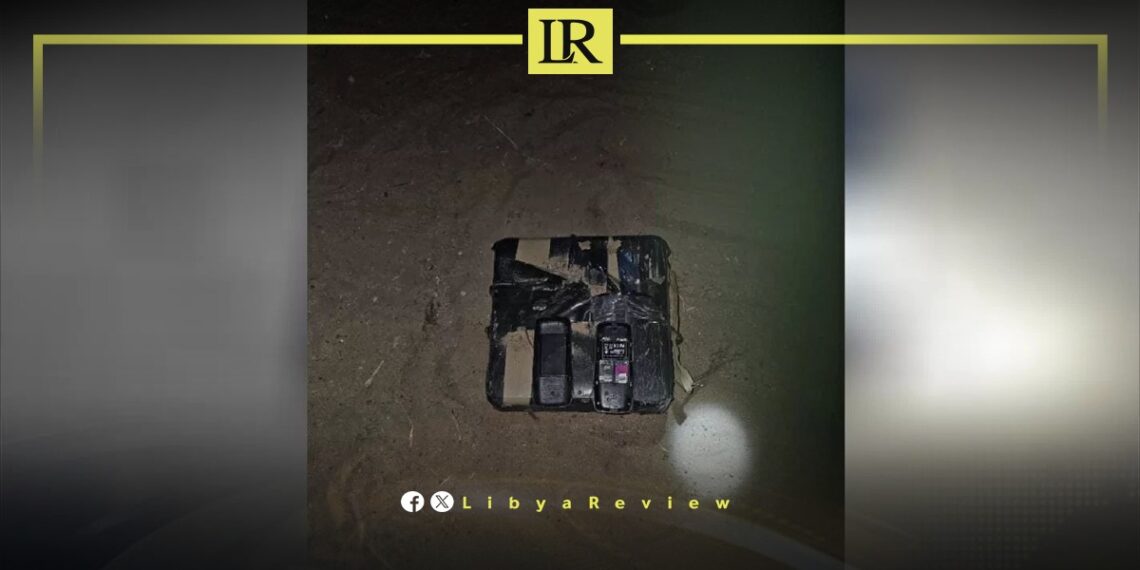The Criminal Investigations Department announced on Thursday the disassembly of a suspected explosive bag at the Sabriya Police Station center in Zawiya.
According to the department, the disassembly operation followed a report from the Sabriya Police Station about the presence of a suspected explosive bag.
The department published a picture of the bag, showing that it may have been prepared for remote detonation, as it contained a “mobile phone” attached to it.
The department stated, “Members of the Security Inspection Office and Explosive Ordnance Disposal Unit, affiliated with the Western Branch of the Criminal Investigations Department, immediately proceeded to the scene… and after initial examinations, it was determined that it was an explosive bag prepared for detonation.”
Safety in Libya’s capital, Tripoli is continuously deteriorating, with threats of kidnapping and murder a daily occurrence for residents.
Over the years, kidnappings, arrests, and assassinations have increased substantially in western Libya. This is evident in the repeated statements of the Ministry of Interior, about the arrest of gangs and individuals involved in the kidnapping and extortion of expatriate workers.
In late October, the Head of the Zaher Al-Jabal Police Station, Abdel-Salam Abdullah Abdel-Nabi, was assassinated by unknown assailants. Just days before, a policeman was assassinated in the same city. Despite this happening in full view of everyone, those at the helm of power do not move a finger to identify the perpetrators. The security authorities do not move to arrest them, or announce their names.
In October 2022, Salah Abdel-Salam, the former Executive Director of the Civil Society Commission of the Libyan Presidential Council, was kidnapped in central Tripoli.
The National Commission for Human Rights in Libya (NCHRL) said that there are reports of security forces being involved in the kidnapping of Abdel-Salam. There has been no contact with him since the incident, and the identity of the security agency that kidnapped him has not been established. So far, his fate remains unknown.
Libya ranked fourth in the Arab world, and twenty in the world, among the countries with the highest levels of organised crime, according to the report of the Global Initiative to Combat Crime (GLOBAL INITIATIVE).
In its latest report on Libya, the foundation based its indicators on several factors, most notably human trafficking, money laundering, drug trafficking, crimes related to animal and plant life, human smuggling, and arms trade.
According to the report, Libya ranked last in the world in terms of the degree of resilience against organised crime. This reflects the inability of the state to confront the scourge of crime.


